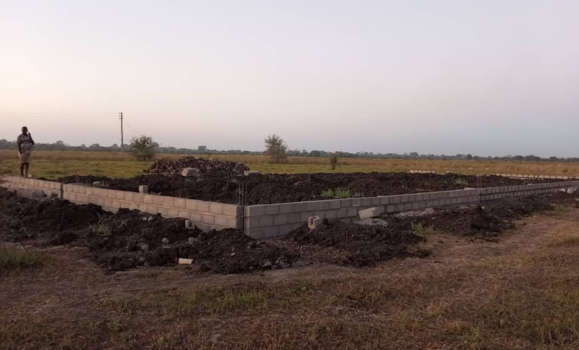Bridging worlds - Dalhousie team advances epilepsy outreach in Zambia
Written and posted by BRC Trainee (and recent Masters graduate) Laith Alhadeed on September 17, 2025 in Dal News
Students Abdullah AlShanti, Laith AlHadeed, and Alaa Abu Ahmad presenting their research findings at the 5th African Congress.
This summer, researchers from Dalhousie University returned to Zambia, continuing their mission to improve epilepsy care and break down stigma in some of the world’s most resource-limited settings. What began as an ambitious research collaboration has grown into an on-the-ground experience of solidarity, service, and shared learning with rural communities.
From conference halls to community clinics
The team’s journey began in Lusaka, the capital of Zambia, where they presented their latest research findings at the 5th African Epilepsy Congress. Sharing their work among leading experts and advocates across the continent provided an important platform to highlight the challenges and opportunities in epilepsy care. Dr. Alon Friedman, Dennis Chair in Epilepsy Research at Dal, says “Our work reinforced why building partnerships and sharing knowledge is so important, together, we can make sustainable change.”
From there, they traveled east to Mfuwe, a remote region where epilepsy rates remain among the highest in Africa. Here, they sought to better understand the daily realities faced by patients and families.
Epilepsy awareness at the grassroots
Invited by health-care providers in Mfuwe, the Dalhousie team held community talks to raise awareness about epilepsy, dispel harmful myths, and share practical knowledge about managing seizures. They visited schools, sat down with students living with epilepsy, and volunteered their time to teach and encourage young learners whose education is often disrupted by stigma. This work is also closely supported by Dalhousie’s Brain Repair Centre (BRC), which continues to drive innovation in neuroscience research and global health partnerships.
The team of students, nurses, healthcare professionals, professors, and physicians assembled to mark a milestone in the initiative.
In a local clinic, physicians from the team provided diagnostic guidance and care, working with few resources but a strong commitment to serve. Nurses, teachers, and families welcomed them with warmth. Medical student Laith reflects, “The kindness we received reflects the powerful relationships being built between communities an ocean apart.”
Witnessing lived experiences
For the Dalhousie team, the most profound part of the trip was meeting patients and families whose lives have been deeply affected by stigma. Many shared stories of social exclusion, interrupted education, and limited access to treatment. The team, led by nurse Andrew Malunga, is dedicated to providing care in a low-resource setting while working to break the stigma surrounding epilepsy. Their efforts are felt far beyond Mfuwe, as patients travel long distances to reach the clinic. “Patients come from hours away to receive treatment in our clinic,” Andrew shares.
From vision to reality
Plans are underway to expand telemedicine initiatives and develop the infrastructure needed for the proposed dedicated epilepsy centre in Mfuwe. The centre would serve as a hub for diagnostics, treatment, rehabilitation, and community education, providing continuous care for patients who currently face fragmented support. The foundation is actively raising money through their website to build the clinic, as well as to raise funds for anti-epileptic drugs and education for epilepsy patients in Mfuwe. “It is so inspiring to witness the clinic’s hard work and the positive effect it has,” shared PhD student Alaa Abu Ahmad and research assistant Sina Lash.
Construction of the epilepsy clinic foundations underway in Mfuwe, Zambia.
Back in Halifax, the student-led epilepsy society continues its advocacy, raising funds and awareness to support the foundation’s goals. “We returned more motivated than ever to grow this work, and to stand alongside the Zambian communities who inspire us with their strength” adds MSc graduate Abdulla AlShanti.




